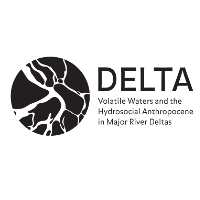Rhythm and relation in watery places: an ethnography of the Parnaíba Delta, Brazil
Deltas are known for their high fertility and natural characteristics but also their instability and high vulnerability. In the Parnaíba Delta, situated in the Northeast of Brazil, these natural characteristics attract more and more actors with different interests – environmentalists concerned about conservation of nature, NGOs attempting to link sustainable resource use and development, tourist companies seeing a market opportunity in the natural beauty of the place. By promoting the “naturalness”, the social dimension of the delta is often driven into the background and human practices predominantly seen in terms of impacts on the natural non-human world.
This PhD project explores human and non-human relationships from a different angle. The project focuses on the entanglements between delta dwellers (Portuguese-speaking of mixed indigenous, African, European decent) and the more-than-human world, rather than separating the social from the natural world.
In Parnaíba Delta, a complex amphibious river-land-sea interface, everyday life is marked by continuous and sometimes highly volatile changes of the landscape. For instance, through movements of water (tides, rain, river) but also sand, sediments and silt, new land appears in some parts, while in other part it is washed away, temporarily flooded or buried by sand.
In this context, this dissertation project, inspired in particular by approaches of multispecies ethnography and rhythmanalysis, explores, through ethnographic fieldwork, delta dweller’s practices and narratives around hydrosociality, belonging and creativity. The project deals critically with approaches that regard landscapes as a passive and stable background. Instead, non-human beings (e.g. plants, fish, crustaceans) and matter (e.g. water, sand, and silt) are seen as active participants who co-shape social worlds. On one hand, the project focusses on how delta dwellers attend to various rhythms, for instance through an adjustment of activities, and how they co-shape rhythms through their practices. On the other hand, it explores how hydrosocial change is experienced in a highly fluctuating environment and how this relates to space and time perception. For instance, it addresses the question of how the constant wiping out of traces of past activities relates to social memory and identity of delta dwellers.
This sub-project is run by Nora Horisberger
